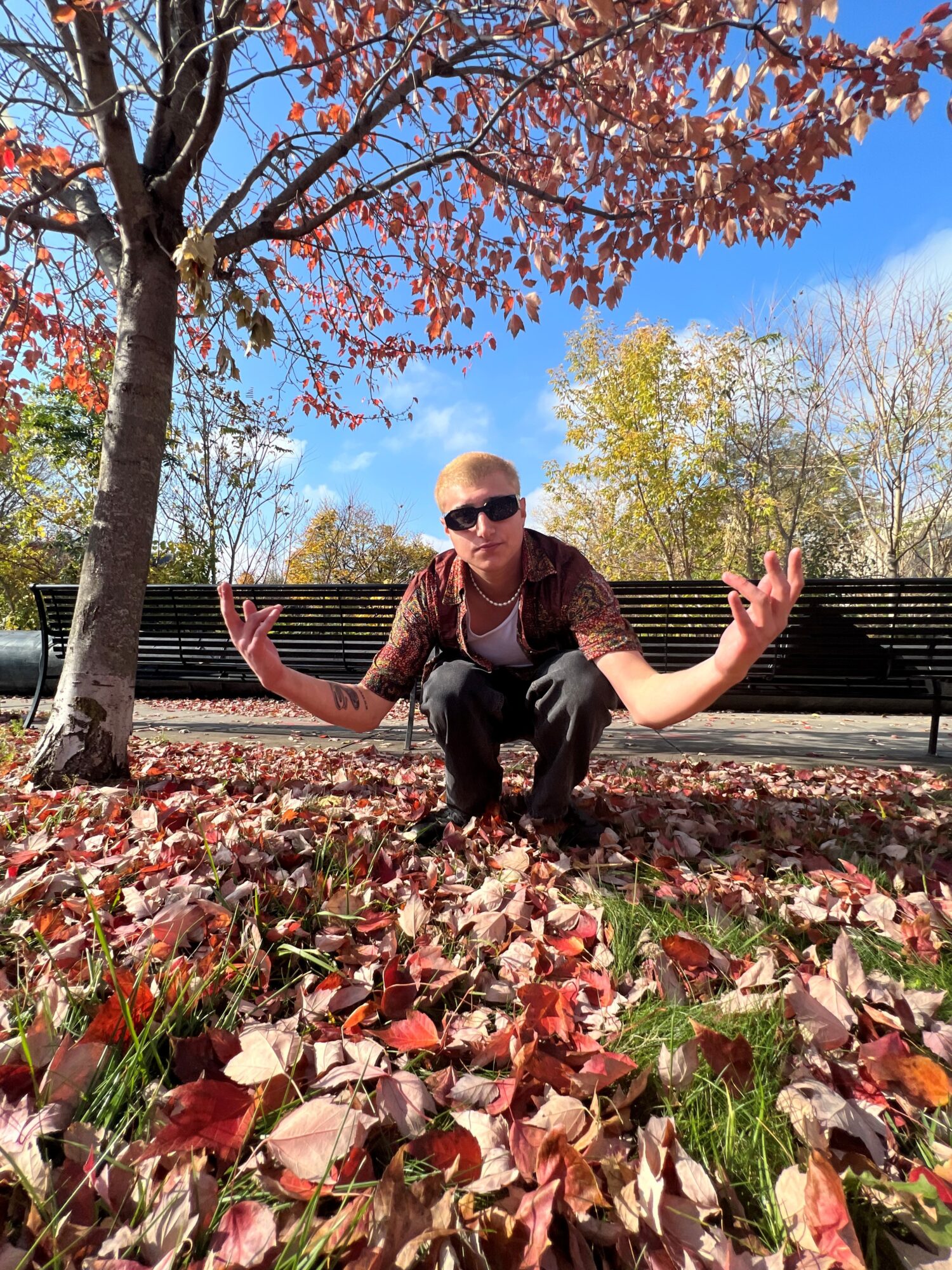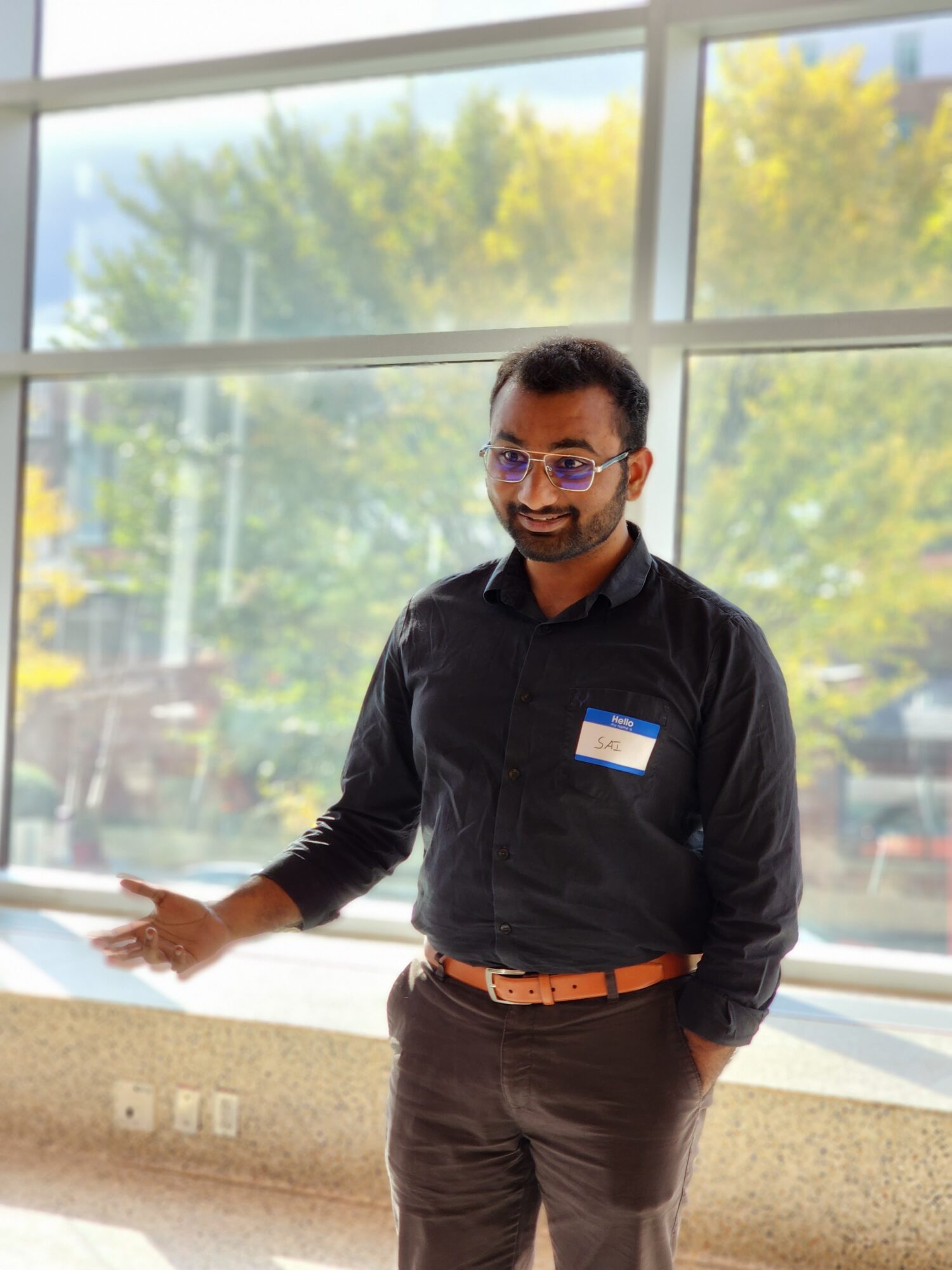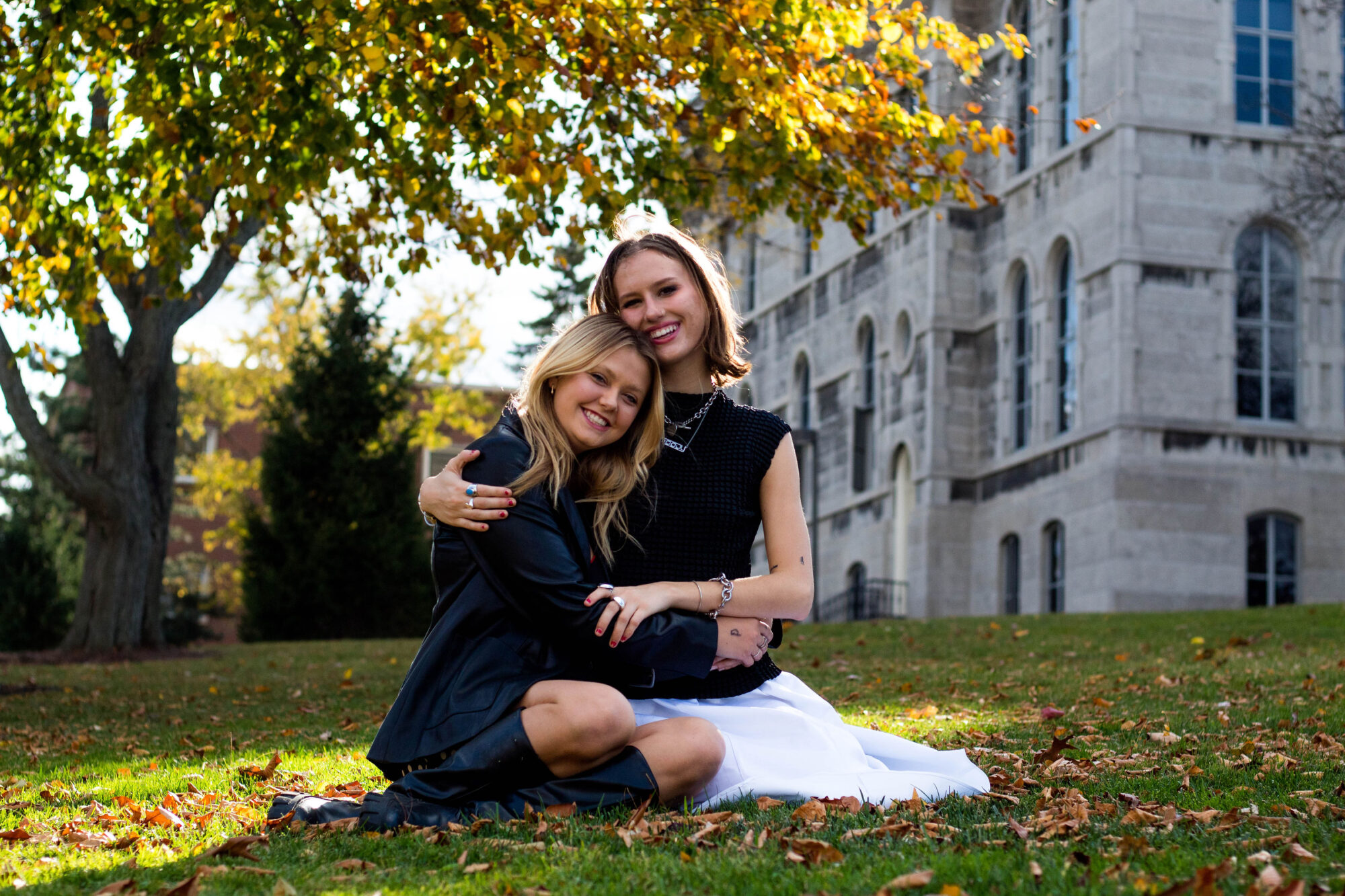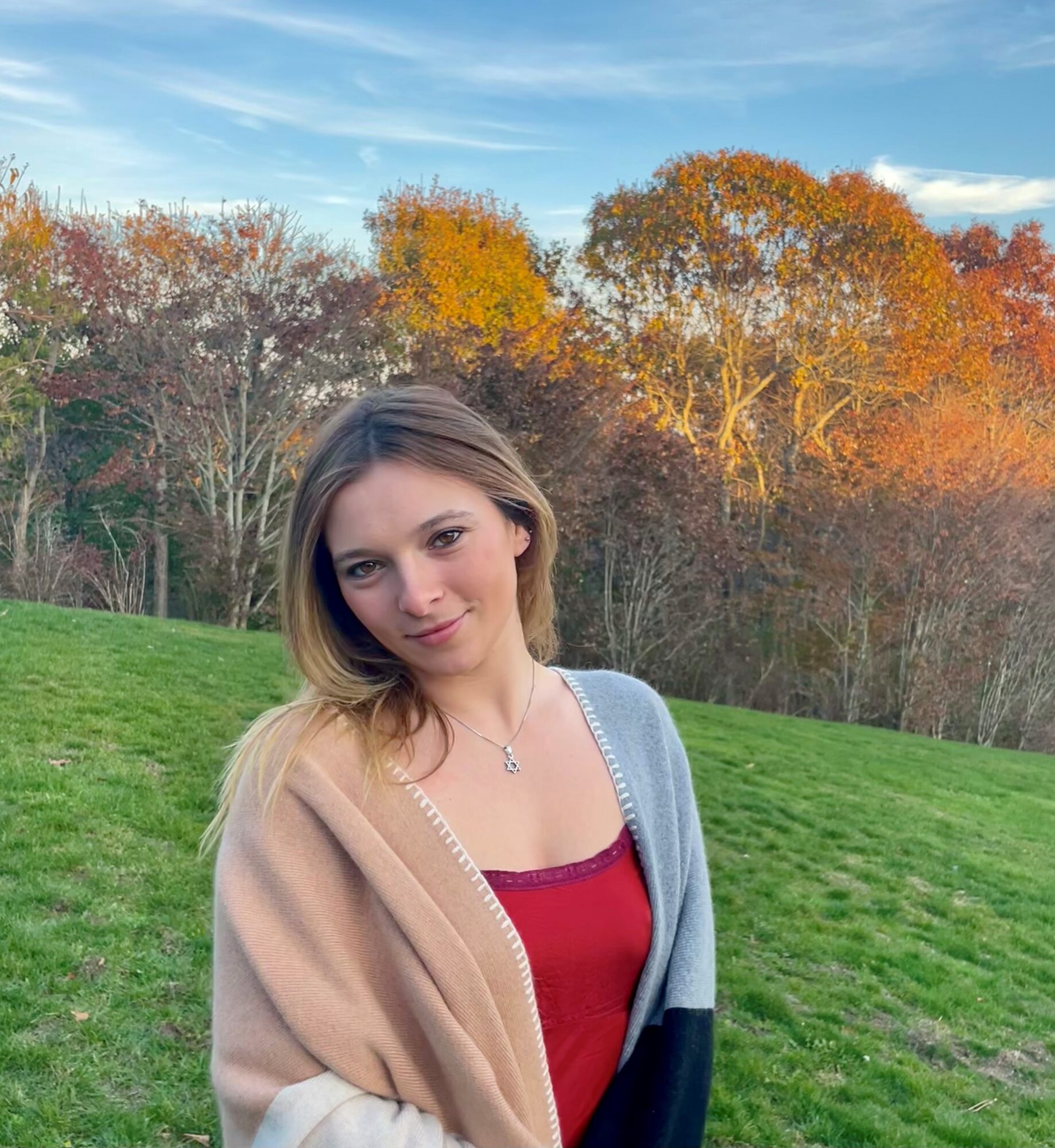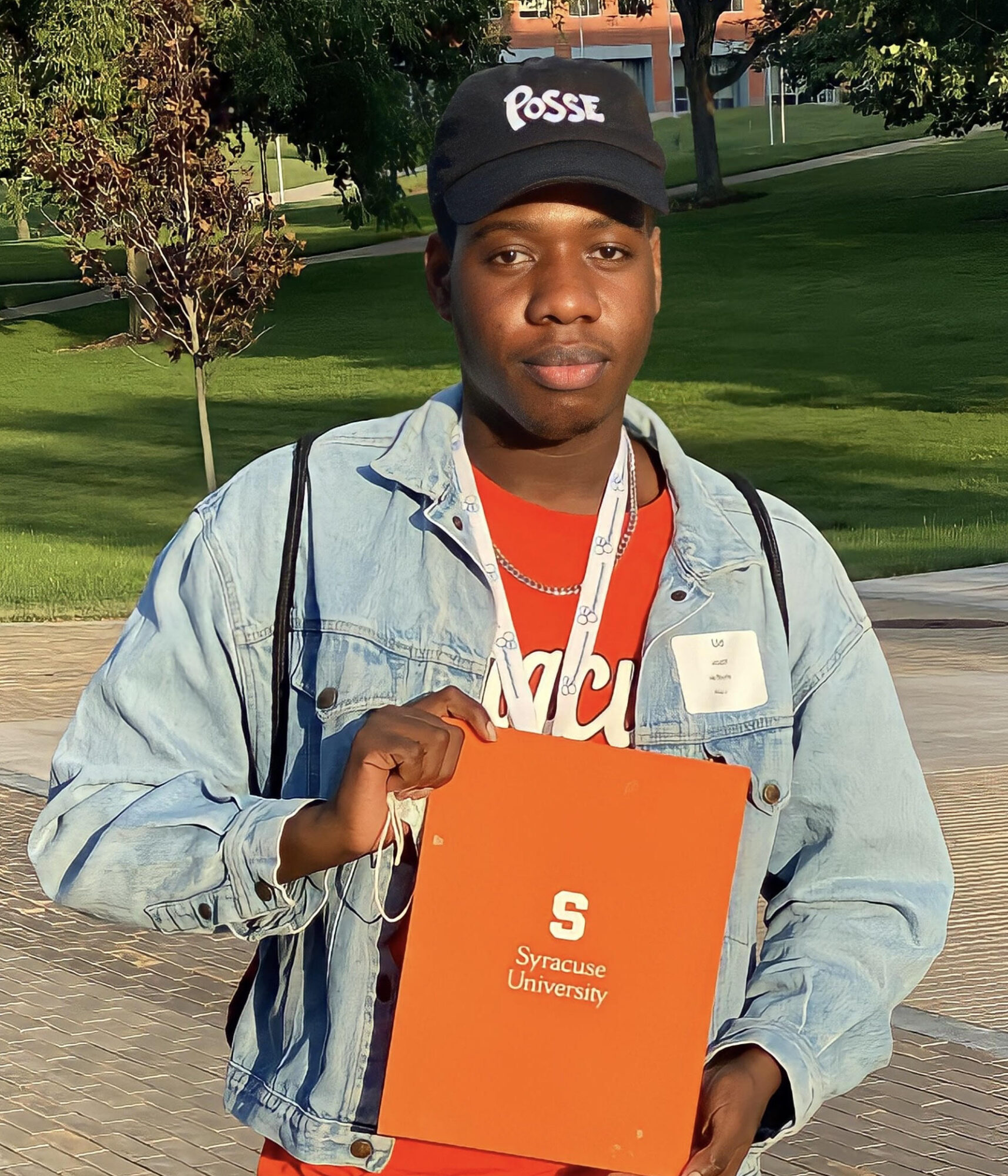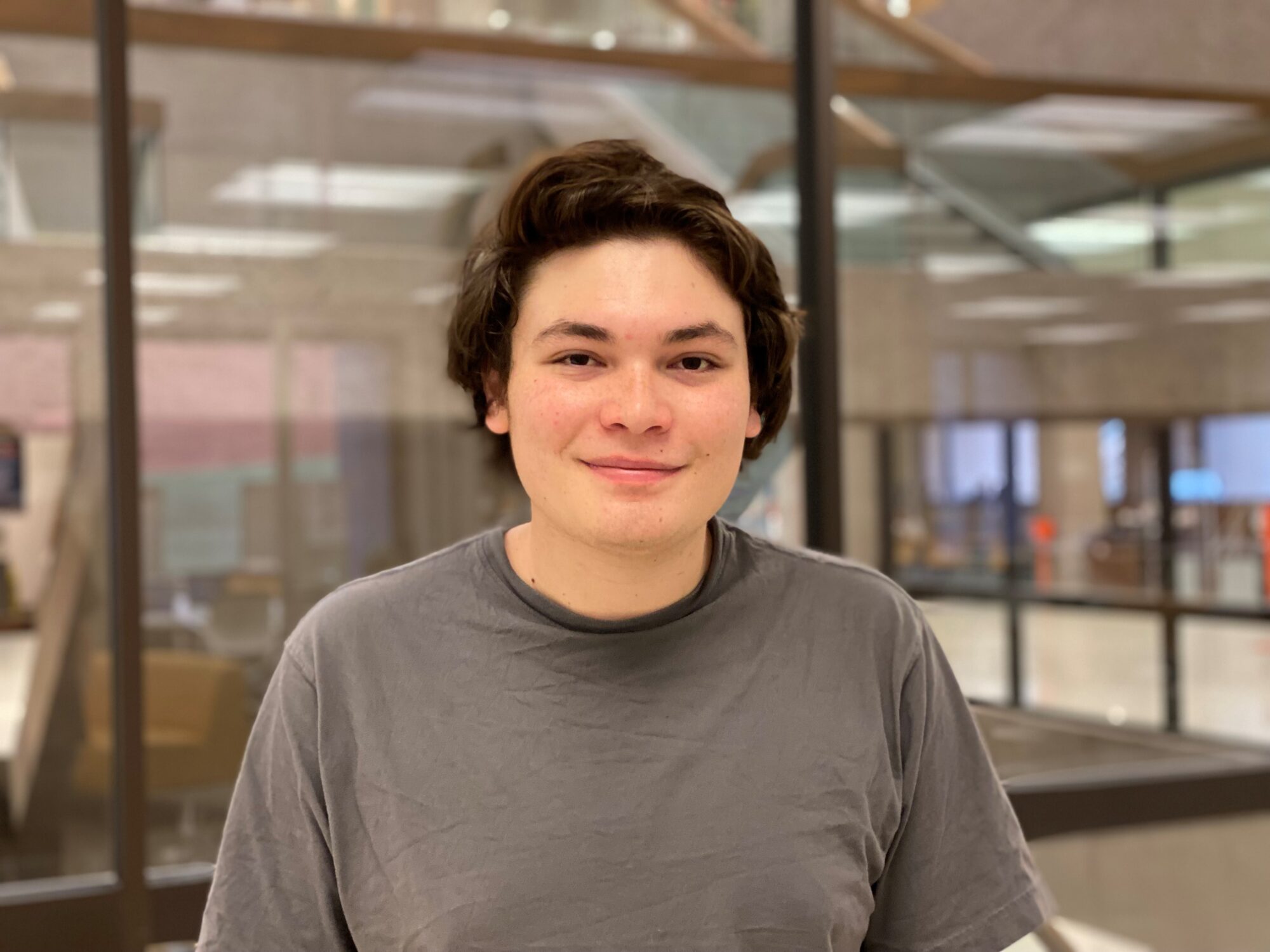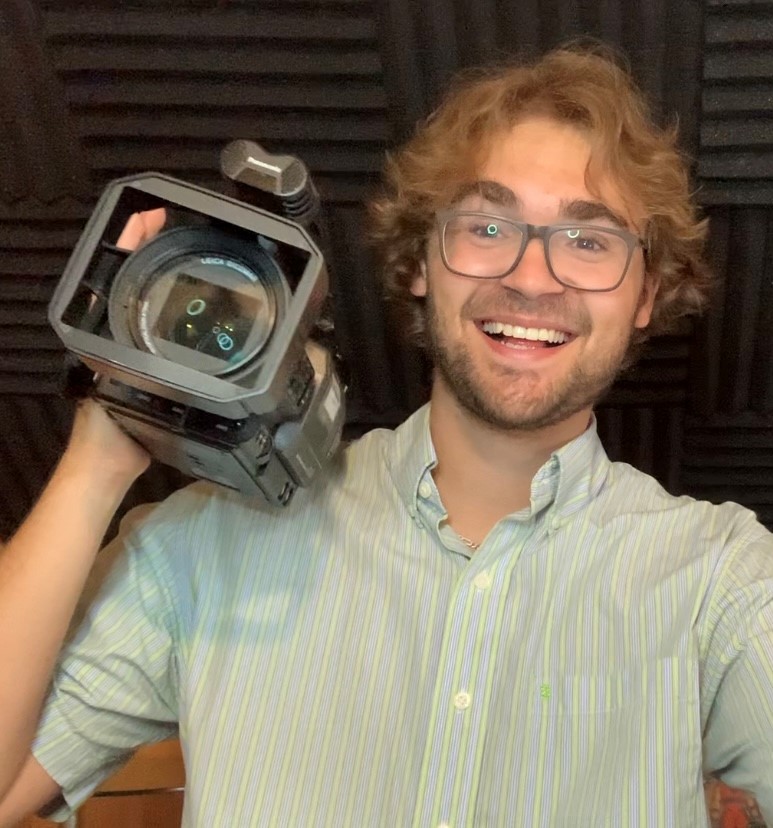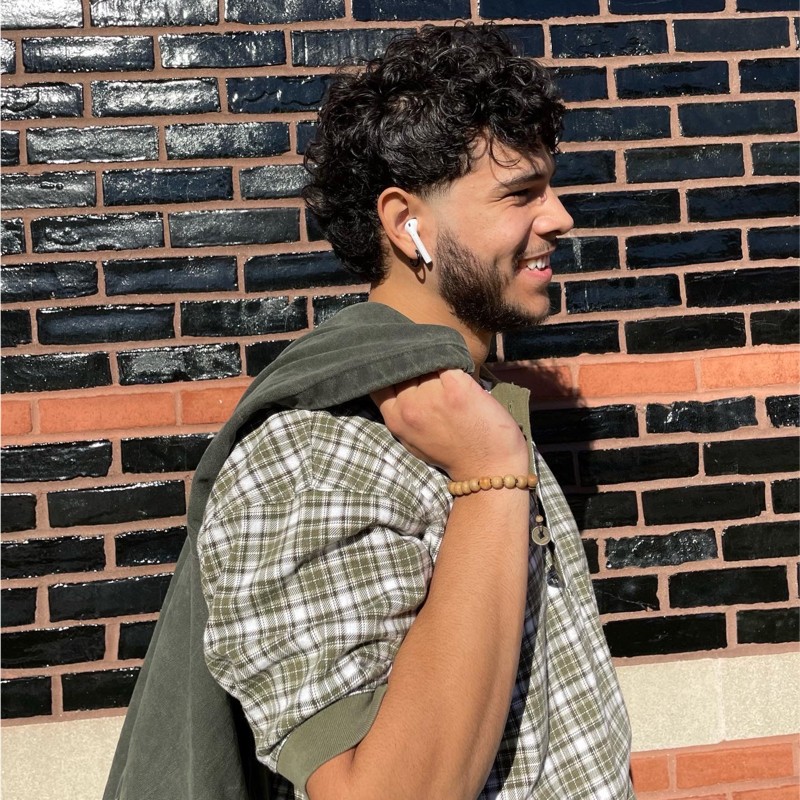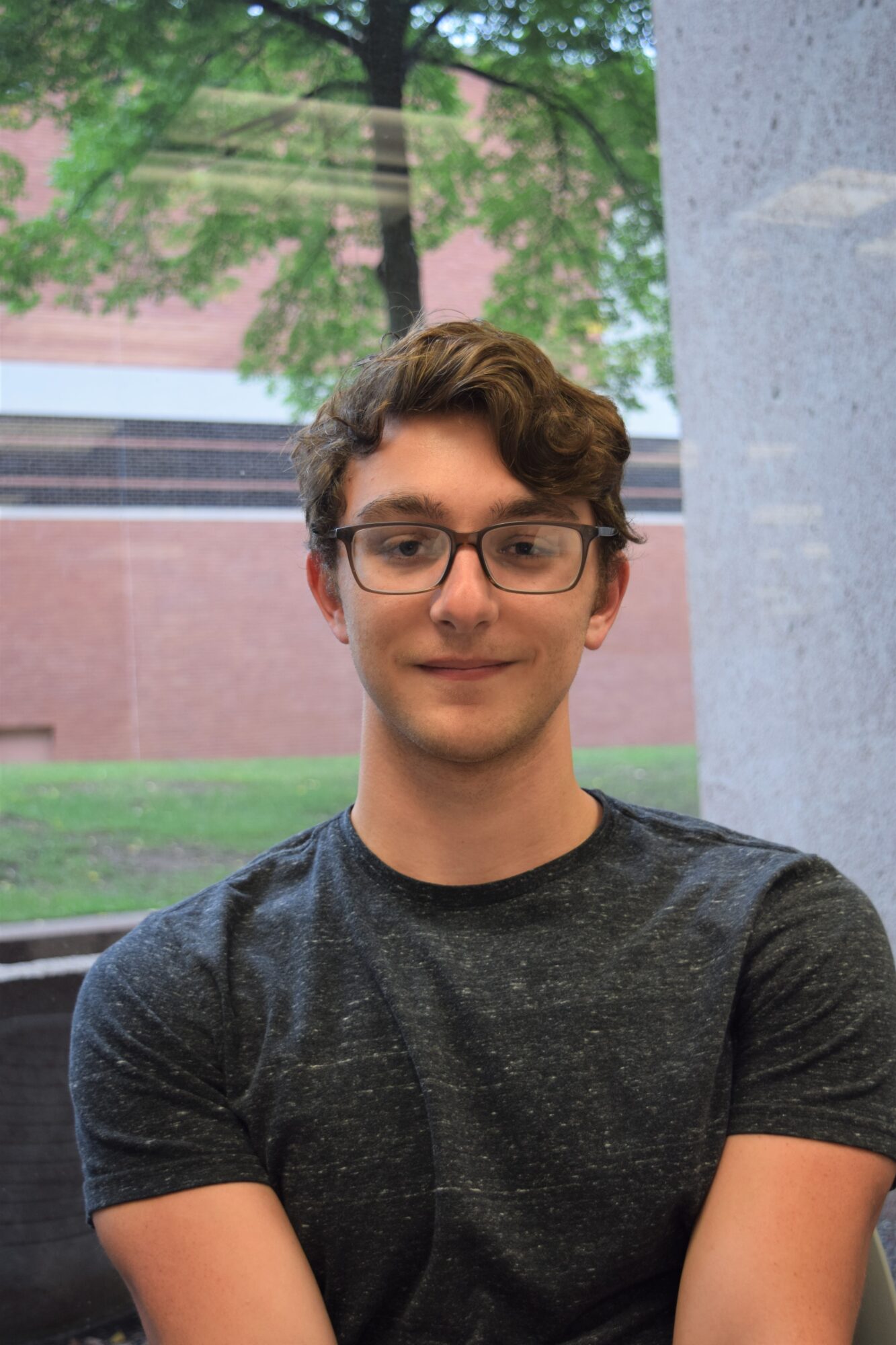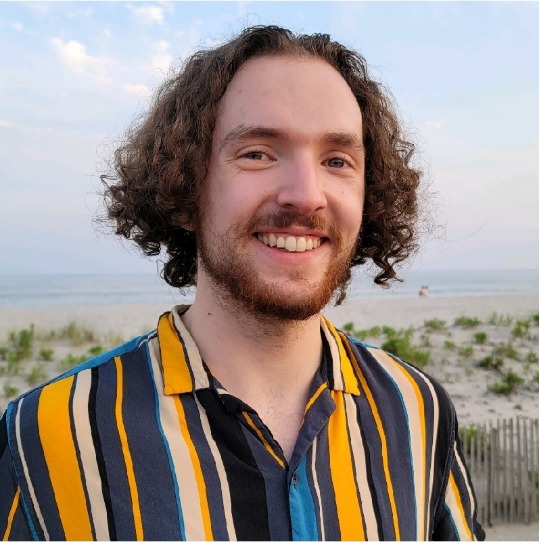
Jack Rose ‘24, a business analytics major in the Martin J. Whitman School of Management, will be the Syracuse University Blackstone LaunchPad Watson Scholar for the 2023-24 academic year.
Rose is a dedicated student and passionate storyteller. When he is not writing for the LaunchPad, he writes fiction and short-form content. You can read his latest work, “Flowers of Eden,” on his Wattpad account (@jackroseauthor). You will likely run into Rose working in the LaunchPad on his entrepreneurial projects, or mentoring other student innovators with specific copywriting and presentation skills. Rose is a great teacher as he is patient and diligent when working with students.
Throughout his time as an entrepreneur and creative on campus, Rose knew he wanted to help others make an impact in the writing community. His latest project explores some “… incredibly topical yet taboo issues that I care deeply about…Now, I hope to use my knowledge to tell a story that’s both entertaining and thought-provoking for readers.” Rose’s work has helped his mentees overcome “imposter syndrome” and find confidence within themselves to persevere through challenges, which led him to apply for the Watson Scholar Position.
Inspired by Syracuse University’s Remembrance Scholar program to honor the spirit and lives of those lost in the Pan Am Flight 103 disaster, the Watson Scholar program is a way to honor the life and entrepreneurial spirit of Hunter Brooks Watson, a Syracuse University student who passed away after injuries suffered in a tragic 2016 car accident. Watson was a rising junior majoring in Information Management and Technology at the iSchool. He was a passionate entrepreneur interested in music, (playing multiple instruments, performing, recording, and producing music videos), sports, and technology. He was especially interested in the emerging field of big data and had been working on new ventures related to predictive data.
This Honorary scholarship is gifted annually to a student at the Blackstone LaunchPad who upholds the memory of Hunter Brooks Watson. It is funded through a generous gift to Syracuse University Libraries from the Hunter Brooks Watson Memorial Fund with the intention for the Scholar to honor the life, passion, and entrepreneurial spirit of Hunter Brooks Watson.
As Rose puts it, “I’ve decided for myself that living inauthentically is pretty lame, and I don’t want to waste another second of my life being too afraid to chase literally the one and only thing I’ve ever wanted to do since I was little, all because it’s “impractical,” or because I’m worried that other people might think my ideas are dumb.” The LaunchPad is constantly impressed by Rose’s disciplined approach to goal setting and accountability, and we are so excited to see what ideas will come about from his spectacular mind throughout the rest of the academic year.
Story by Renee Giselle Kurie, Blackstone LaunchPad Global Fellow; photo supplied
